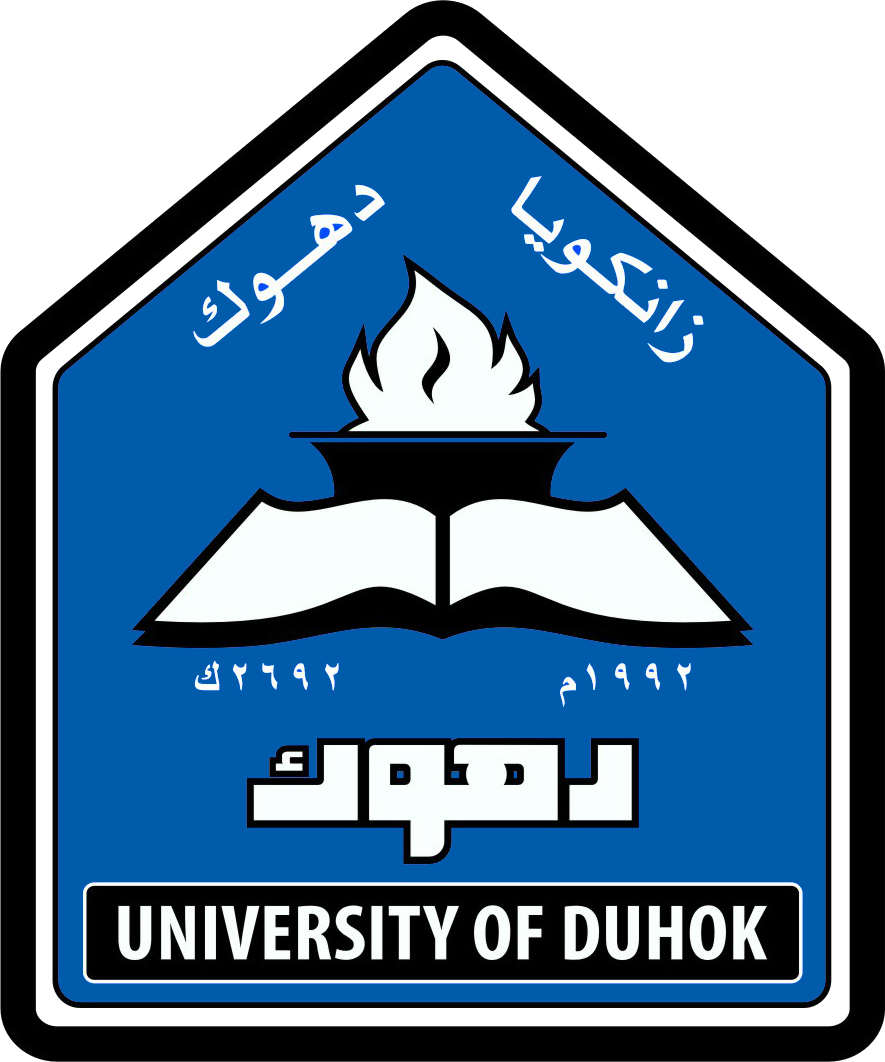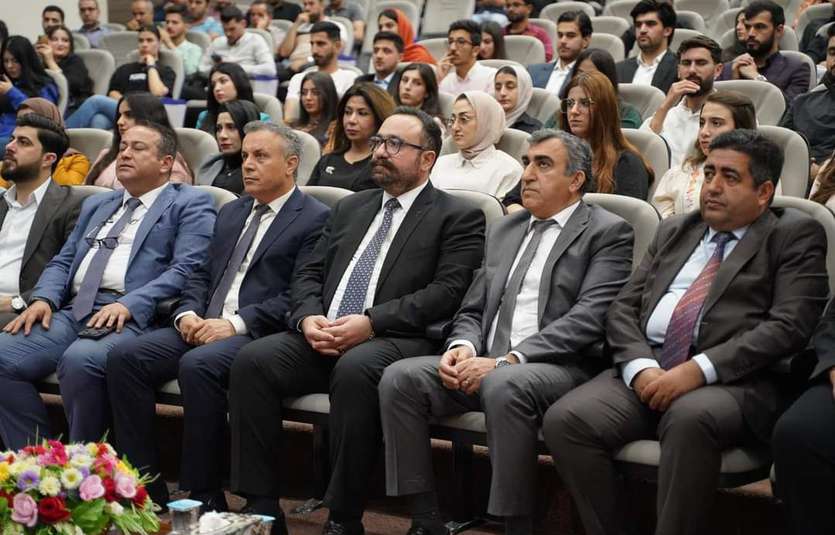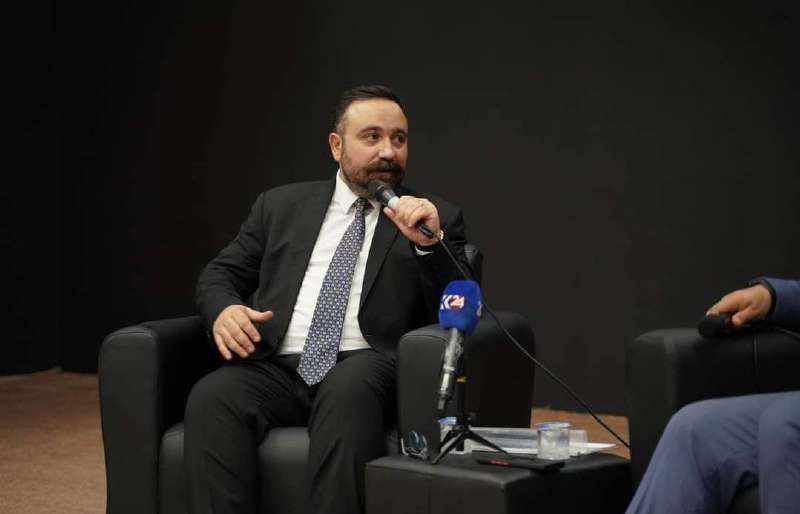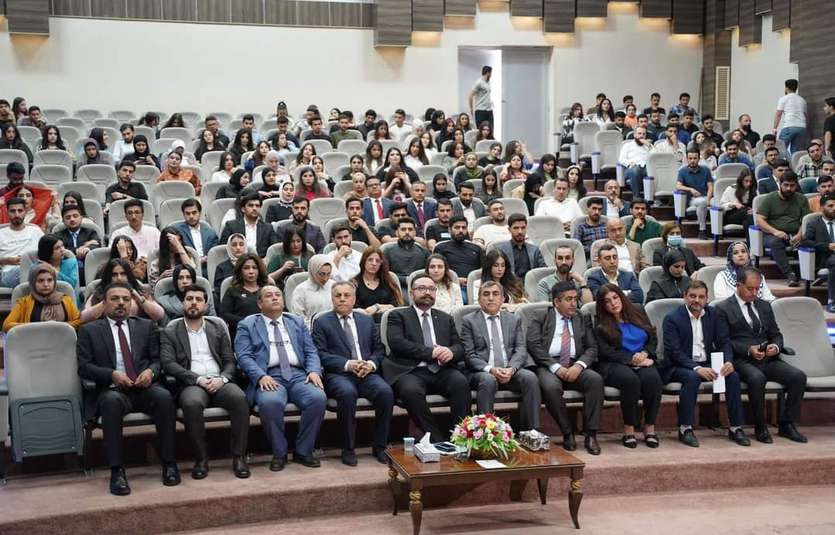The University of Duhok hosted a seminar titled "The Situation of Minorities and Coexistence in the Kurdistan Region" on May 6, 2024. The event took place at the Peshmerga Hall, Student Center of the University of Duhok, and was attended by distinguished guests, including Dr. Dawood Sulaiman Atrushi, the President of the University of Duhok, and Ano Jawhar, the Minister of Transportation and Communications. Also present were various deans, college members, students of the University of Duhok, as well as officials from political parties and government entities.
Dr. Dawood Sulaiman Atrushi, the President of the University of Duhok, commenced the seminar by extending a warm welcome to all attendees. He initiated discussions on the current political landscape in Iraq, emphasizing the implications of recent rulings by the Federal Court, which have cast uncertainty over the future of Kurdistan. Notably, these rulings have included the suspension of parliamentary seats allocated to ethnic minorities, an action deemed unjust and detrimental to both the affected communities and the region as a whole.
Dr. Hawar Khalil, Dean of the College of Political Sciences at the University of Duhok, elucidated the rationale behind organizing the seminar, citing concerns regarding the adverse effects of the Federal Court's decisions on communities within Kurdistan. Minister Ano Jawhar, representing the Christian community of Kurdistan, echoed these sentiments, emphasizing the imperative to voice the grievances of affected communities. He underscored the importance of upholding Kurdish culture and the governance framework of the Kurdistan Region as catalysts for fostering peaceful coexistence among its diverse populace.
Minister Ano Jawhar further articulated his views on the significance of communal relations, particularly emphasizing the harmonious dynamics prevalent in rural settings. He warned against the deleterious consequences of the Federal Court's decisions, which he argued could erode the foundational principles of ethnic coexistence integral to the Kurdistan Region's identity. Additionally, he underscored the region's constitutional entitlements, as enshrined in Articles 49 and 125 of the Iraqi Constitution, including the longstanding parliamentary representation afforded to Kurdistan.
It is noteworthy that the Federal Court has issued multiple rulings targeting the Kurdistan Region, including the contentious decision to suspend parliamentary seats allocated to minority communities. Such developments underscore the gravity of the challenges facing Kurdistan's socio-political landscape.
UOD Media; May 7, 2024
Tevzhin Elias
Photo Credits: Ali Banki






